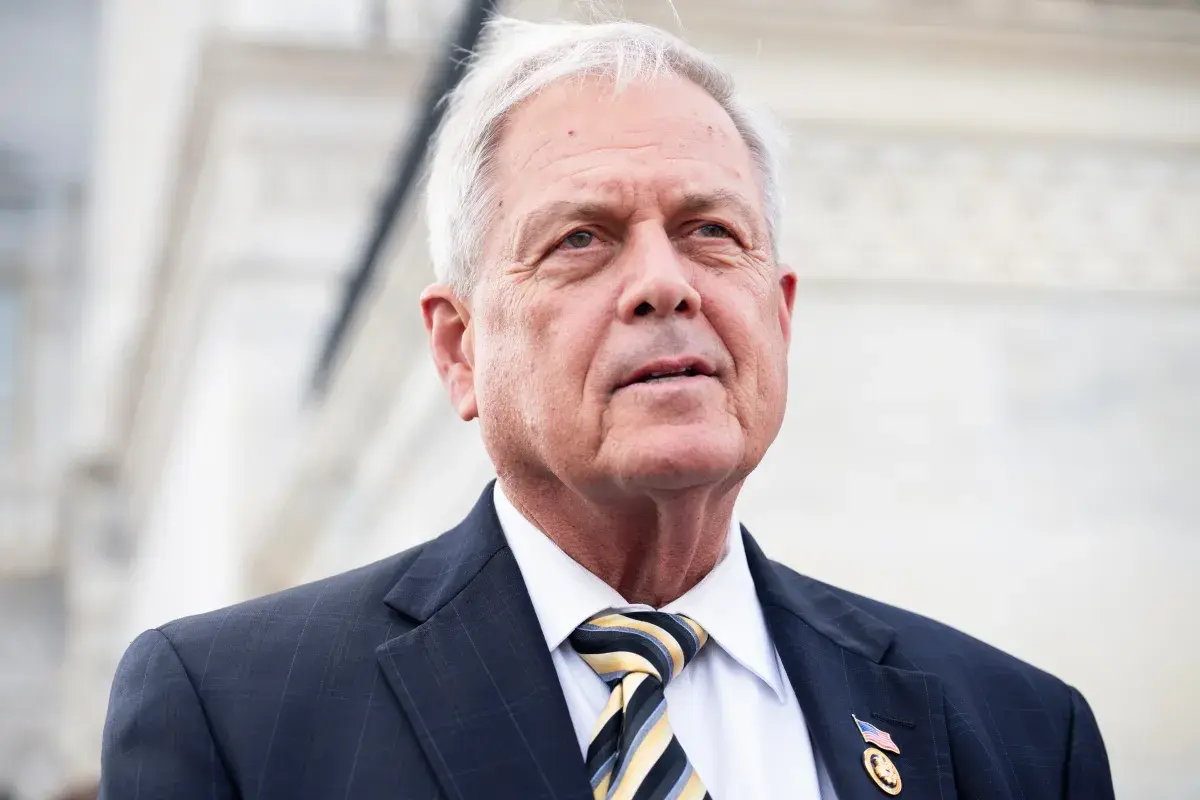
A Republican Congressman has called for lawmakers to have their pay suspended during the government shutdown.
South Carolina Representative Ralph Norman said in a press release that he had reintroduced a constitutional amendment that would bar members of Congress receiving a salary while the federal government is in a shut down.
Newsweek reached out to Norman by email to comment on this story.
Why It Matters
After Congress could not agree on a funding measure, the U.S. government shutdown at midnight on Tuesday. During a shutdown, lawmakers continue to receive their salaries while a number of essential workers that are required to continue working will not get a paycheck.
These workers, along with furloughed government staff will, instead, receive backpay when the government reopens, according to a law Congress passed in 2019.
Most lawmakers receive an annual salary of $174,000 while those in top leadership roles, like the Speaker of the House, receive more.
What To Know
Norman introduced the amendment hours before the U.S. government shut down.
The Senate adjourned Tuesday evening without passing a funding resolution, with both parties failing to agree on each others funding proposals needed to keep all federal operations running.
Norman’s amendment called for lawmakers to forfeit all pay without receiving later backpay. In a statement, Norman said this would hold “leadership accountable” and give “added urgency to funding responsibly.”
The move also follows previous efforts to stop members of Congress from receiving their salaries during a shutdown. The No Budget, No Pay Act, for instance was introduced by Tennessee Democrat Jim Cooper in 2012. It proposed that lawmakers’ salaries would be paused unless Congress passed a budget by October 1, 2012. It did not go forward.
When the government last shut down in December 2018, Norman forfeited his pay, saying in a statement that it was “reprehensible that any Member of Congress would accept pay while our troops are not guaranteed the same.”
It is unlikely that Norman’s effort will be successful. A constitutional amendment requires the support of two thirds of both the House and Senate. Meanwhile, under the 27th amendment passed in 1992, Congress is prevented from giving itself an immediate pay rise or cut. Any changes can only take effect after the next election, meaning any move that would change salaries during this shutdown would not take effect.
What People Are Saying
Thomas Whalen, an associate professor who teaches U.S. politics at Boston University told Newsweek:: “It’s a reasonable proposal but it has as much chance as Joan Baez performing at a MAGA rally. It ain’t gonna happen. Period.”
In a statement, Norman said: “Members of Congress have a constitutional duty to fund the government’s essential functions. If Congress fails to meet that obligation, we should not expect taxpayers to continue paying us for inaction. No one else in America would get paid for failing to fulfill their duties—Congress should face the same principle.”
“When families, small businesses, and workers fall short, they don’t have the luxury of collecting a paycheck for unfinished work,” he continued. “Washington ought to be no different. Accountability is not optional. It is the foundation of public service, and Congress must be held to the same standard as the people we represent.”
Democratic Senator Andy Kim said in a statement Tuesday: “It’s wrong that the President and Members of Congress get paid during a government shutdown when our military and public servants don’t. I will be refusing my own pay if we end up in a shutdown. Government leaders shouldn’t be playing with other people’s chips.”
Florida Republican Kat Cammack wrote in a letter shared on X: “I respectfully request that you withhold my net pay until an appropriations agreement is reached and has taken effect. If our military isn’t being paid, neither should Members of Congress.”
What Happens Next
It is not clear how long the government shutdown will continue.



